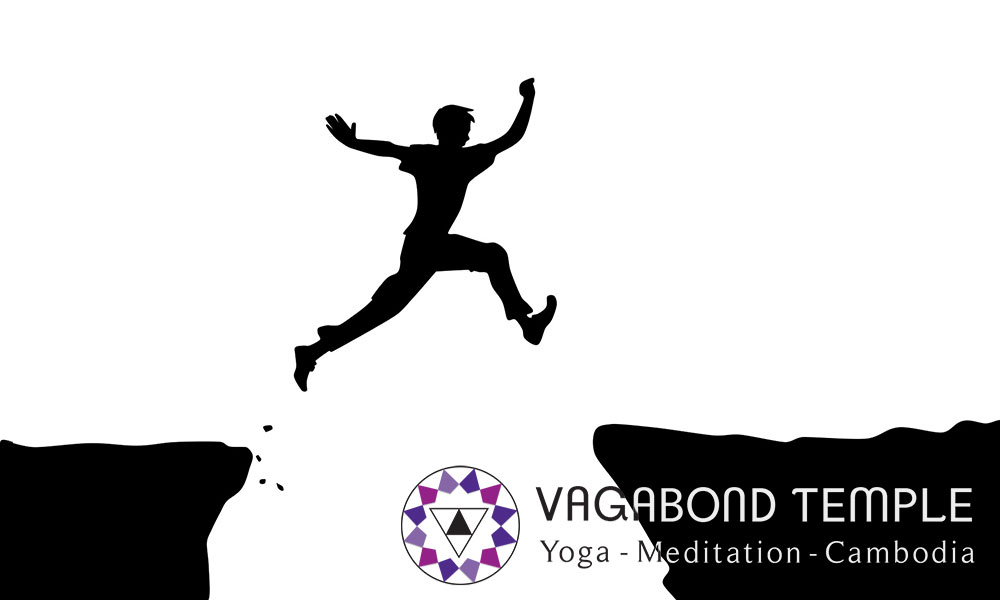The Comfort Zone Is An Illusion: Why You Must Embrace Change

We hear a lot about the comfort zone, and why we should leave it. In today’s world, leaving the comfort zone is often associated with success in business or self-improvement. Certainly we can become more successful by being prepared to take risks, but there is a much deeper reason for us to step outside the comfort zone.
When we stay in the comfort zone we are trying to keep things the same, but in doing this we are denying one of the fundamental laws of reality: the fact that everything is constantly changing. Day becomes night, night becomes day, the cells in your body are dying and being replaced, even your thoughts and emotions are in a state of flux. Ultimately there is no comfort zone. The idea that there is some kind of safe place where nothing changes is a complete illusion. This fact is well understood in the Buddhist tradition which points out that our inability to accept change causes suffering (if we take temporary things to be permanent, their inevitable loss will hurt).
If everything is changing, why do we feel the need to keep things the same? A lot of it simply comes down to survival. Us humans spent many thousands of years living in the precarious situation of having to gather food and avoid being food. Changing any of our survival routines could result in instant death, so it is no wonder we learnt to build a comfort zone.
In today’s world, many people dream of adventure, but stay in a 9-5 job for security. There is the fear that if try and change to much, we’ll lose what we have. That’s that old survival instinct kicking in, telling you to keep things the same at all costs. It is true that change can kill, but this is not such a bad thing if we think of it as killing our old selves in order to find something new!
Working with change is really fundamental to the spiritual path, which many people come to because of the feeling their life is not working out or that something is missing. In these cases, it is only with change that a more fulfilling situation can be created.
Imagine a tennis player who is the top 100 in her country, but she wants to make it to the top 10. Her coach tells her that the only way is to change her serve, a serve that she has been doing for 15 years. Can you imagine how hard this would be? Sometimes brining about change involves changing life-long habits, which is easier said than done! This is one of the reasons the spiritual path can be challenging, you may have a strong desire for things to be different but nothing will change unless you do!
Leaving the comfort zone is as much about dropping old habits as it is about forming new ones. Anybody who has practiced mindfulness will have realised this. Spending time in the present moment instead of allowing the mind to wander is, to start with, an extremely challenging practice. This is because we do not like to change. Even if the thousands of junk thoughts you may have on a day are making you miserable, there will be much resistance to changing this, as the meditative mind-state is something unfamiliar. Remember, to our primitive egos, change = death, so even bad situations and unhelpful habits will be preferred to jumping into the unknown.
If change is so frightening to us, then why should we do it? Why should we put ourselves through the discomfort of changing our habits? There are two reasons. Firstly, everything is changing anyway whether we like it or not, so we had better get on board with it! Secondly, it is only though change that we can expand our awareness and experience something new.
In many spiritual traditions there is a common theme of going beyond our default, survival-based way of looking at the world in order to expand our awareness. Buddhism teaches us that the seemingly solid world we perceive is illusionary. In the Kabbalist tradition, it is said that our egos only see 1% of reality, our souls the other 99%. The trouble is that, thanks to our ego’s resistance, often the 1% is all we see. Plato famously illustrated our limited perception of the world with his cave allegory. In this story, people are chained up, facing the wall in a cave and unable to turn around. There are many things happening outside the cave, but all they can see are the shadows on the wall. Not realising this, the chained-up people take the shadows to be reality. This is how the world is to us if we remained imprisoned by our egos.
A great book on the subject of change and resistance to change is, “The Soul Speaks” by Mark Jones. He explains that while the soul sees change as adventure. The ego, on the other-hand, just sees it in terms of what may be lost. Mark Jones associates the soul with love and the ego with fear, and points out that every choice we make comes down to one or the other. So, quitting that 9-5 job will frighten the ego (losing the pay-check = fear) but excite the soul (feeing up time to fulfil your destiny = love). It is not just dramatic decisions like this though, it applies to whatever we do.
Here is an exercise to try. Write down and say out loud three things you love about yourself. See if you notice any resistance. It may feel unnatural or untrue, or maybe like you are bragging. If there is resistance it could because being nice to yourself is a new habit whereas self-criticism is much more familiar (this is the case for many people in today’s world). It may seem that saying nice to things to yourself will be boosting your ego, but by breaking the habit of self-criticism actually you are nourishing the soul!
Really it boils down to two options. Either we resist change and continue to live in our comforting illusion (no matter how uncomfortable it may actually be), OR we embrace change – wherever it takes us. Even with this approach there are no guarantees, trying something new may not give us the results we expected – but really this is the whole point. Every time we try something new, we learn something, regardless if we were successful or not. What we certainly cannot do is to keep doing the same thing and expect a different result, as Einstein pointed out, this is the very definition of insanity.
Getting out of the comfort zone and embracing change works on many levels. It can allow you to improve your life and find more fulfilment, it helps you lose the fear of the unknown and ultimately it brings us into harmony with the changing nature of reality. Looking at it this way, the comfort zone doesn’t seem like such a comforting place to stay in.
Working with change can be challenging, but this does not mean that spirituality always has to be a struggle, eventually we will become comfortable with the unknown. Remember that it is the only the ego that is resisting, our innermost essence is not afraid to change: the soul loves an adventure!



